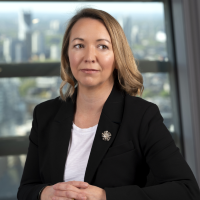At present, if a person or firm makes a complaint to the Financial Ombudsman Service (FOS), FOS is only able to charge a case fee to the respondent, i.e. to the firm which is the subject of the complaint. The complainant pays nothing, win or lose. HM Treasury is seeking to exercise its power to make regulations which would allow FOS to charge case management fees to CMCs and professional representatives bringing cases to FOS on behalf of complainants.
Initially, there were sound reasons for FOS's statutory free to user approach and the model worked well, enfranchising the public to right financial wrongs using a simple and informal process which reduced firms' legal spend and the time spent dealing with complaints.
With the emergence of PPI complaints the landscape changed, as professional representatives realised that by adopting a formulaic, cut and paste approach, they could make substantial sums on a no win no fee basis, taking a fee of 30% or more from any redress awarded. With the maximum FOS award now at £415,000, the sums involved can be considerable. Over the past two years, approximately 20% of cases have been brought by professional representatives, reflecting the gains that can be made to the detriment of firms and to complainants.
While solicitors sometimes act for complainants, most professional representatives are claims management companies (CMCs), regulated by the Financial Conduct Authority (FCA). The FCA's rules (CMCOB), require CMCs to take all reasonable steps to investigate the existence and merits of each element of a potential claim before making or pursuing the claim. Investigations should be such that in presenting a claim, the CMC should not make representations which are false, misleading or an exaggeration and the CMC must not make or pursue a claim if it knows that the claim does not have a good arguable base.
Some CMCs follow the rules carefully and provide a valuable service for people who are time-poor or who may otherwise struggle to access FOS, but some do not and charge substantial sums while adding little value. Currently, only 50% of complaints involving professional representatives are successful.
In our experience, if something goes wrong, particularly if a novel financial problem faces widespread publicity, in the scrabble to find "the new PPI", financial services firms may face a slew of poorly thought out and badly articulated complaints, which will include complaints brought on behalf of non-customers, complaints which are out of time and complaints which mirror those that have already been rejected by FOS. This can be a major drain on firms' resources and prevent firms from dealing with valid complaints or even undertaking their day-to-day business activities.
FOS, itself, has noted that complaints brought by professional representatives often fail in circumstances where its approach is already well established, meaning that the failure should have been predictable. Wasting FOS's time on hopeless complaints negatively impacts its ability to help other customers, adds to its backlog and increases its operational costs.
For example, there was a lot of publicity about members who were advised to transfer out of the British Steel Pension Scheme (BSPS) in questionable circumstances. Initially, BSPS claims were a lucrative avenue for professional representatives as redress could easily run to six figures. While some professional representatives provided benefit to disappointed former BSPS members who might have lacked the confidence to bring complaints in their own names (and may have charged limited or fixed fees), others were less scrupulous.
In the blizzard of BSPS claims, we acted for an IFA who did not advise on pension transfers, referring BSPS members who approached it for transfer advice to other firms. Nevertheless, a professional representative brought about half a dozen cases against our client, alleging wrongful transfer advice. FOS rejected the first case on the basis that the IFA did not provide advice and merely referred customers elsewhere. The representative did not withdraw the remaining cases and, in fact, brought about a dozen more. When rejected by a FOS investigator on the basis that no advice had been provided, all 18 cases were automatically referred for Ombudsman decisions.
The 18 cases were rejected by the Ombudsman, but the IFA had to pay 15 case fees (the first three cases in any one year do not attract a fee), as well as legal costs, and wasted considerable professional time defending these wholly unmeritorious complaints. The professional representative (and its customers) paid nothing, even though 17 of the cases were bound to fail and the representative must have known that at least 12 of the cases could not possibly succeed before they were even referred to FOS.
Although less extreme, we have also acted in cases put forward by CMCs where complainants are clearly outside FOS time limits and no reason (valid or otherwise) has been supplied, where the respondent firm was not involved in the transaction complained about and where the CMC did not have proper authorisation to act on behalf of the complainant. In each case our client wasted valuable management time dealing with complaints that could not be upheld and either our client or its insurers incurred costs which they could not recover. While the CMC did not make money, as it did not win, it paid nothing.
FOS remarks that like authorised firms, professional representatives have the chance to reduce the volume of cases they refer to FOS by assessing them in line with FOS's published insights before referral. FOS therefore considers that it may be appropriate that the professional representatives’ role, and potential to impact FOS's service and gain economic benefit, be reflected in a contribution to FOS's costs.
In other words, FOS is exasperated with having to act as quality control for CMCs out to make a fast buck, who will refer anything on the off chance that they may secure a win, safe in the knowledge there is no penalty if they lose. It considers that its "polluter pays" approach should be extended to professional representatives, in the hope of deterring obviously hopeless claims. FOS is, however, concerned to avoid professional representatives passing fees back to consumers.
FOS is therefore consulting on how to exercise its new powers once the Treasury's proposed regulatory change is approved. Its consultation is open until 30 January 2024.
FOS expects to start charging fees to professional representatives in September 2024.
Please contact us if you would like to contribute to a response to FOS's Consulation or would like more information about these proposals or the services we can provide in respect of FOS complaints.















